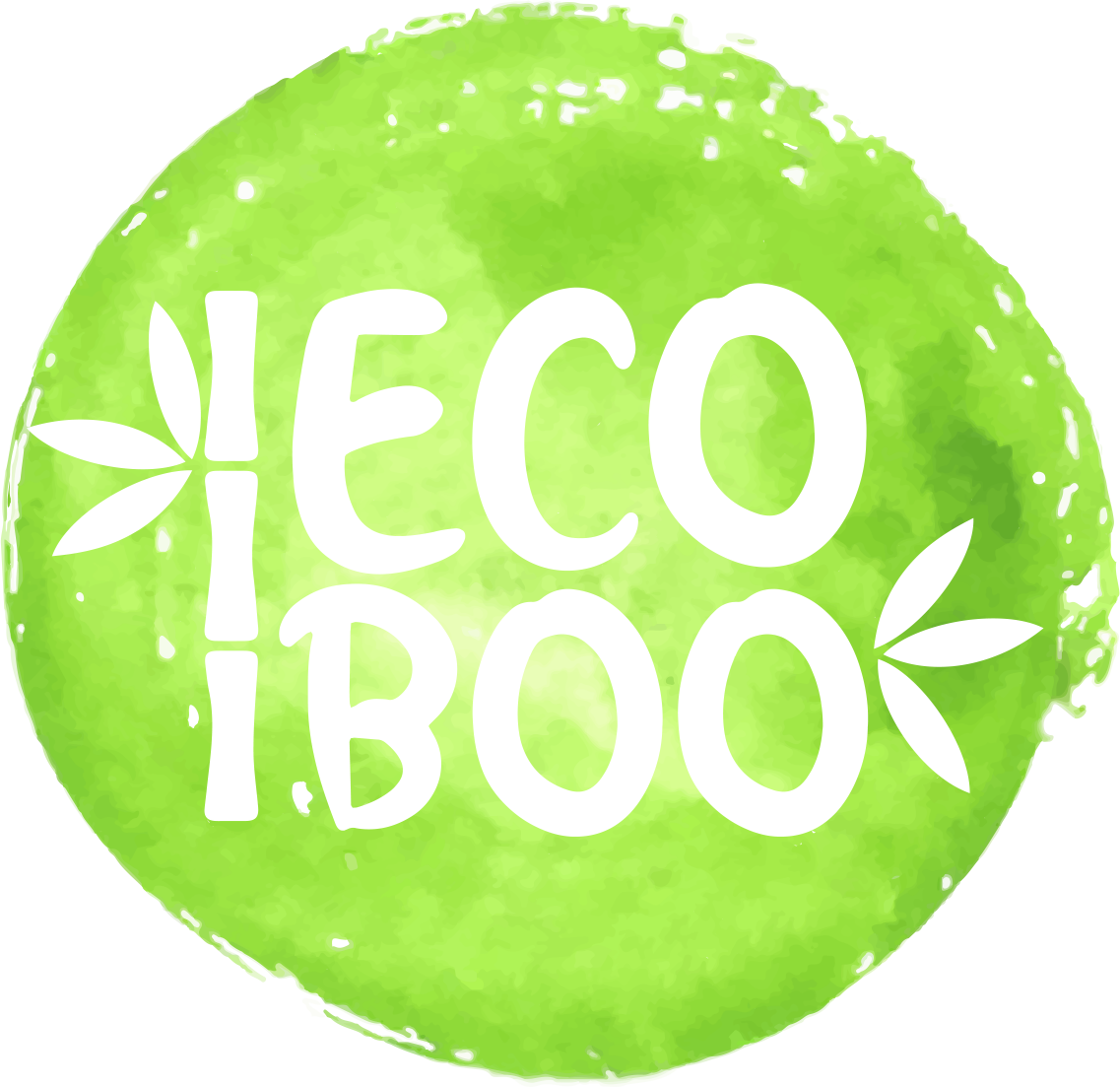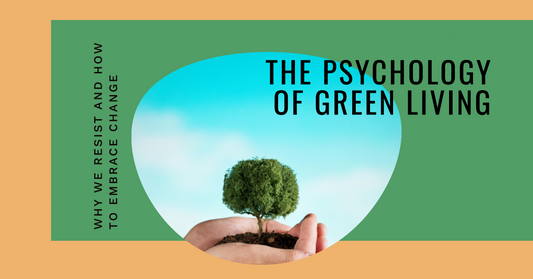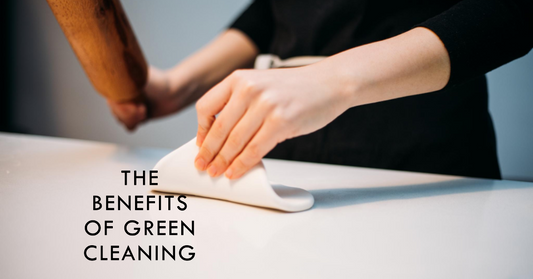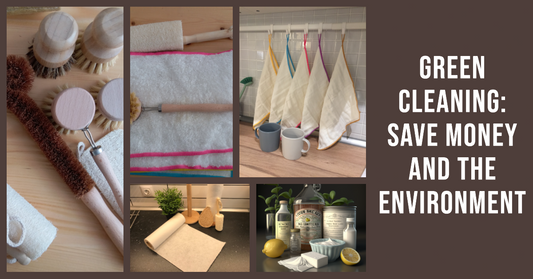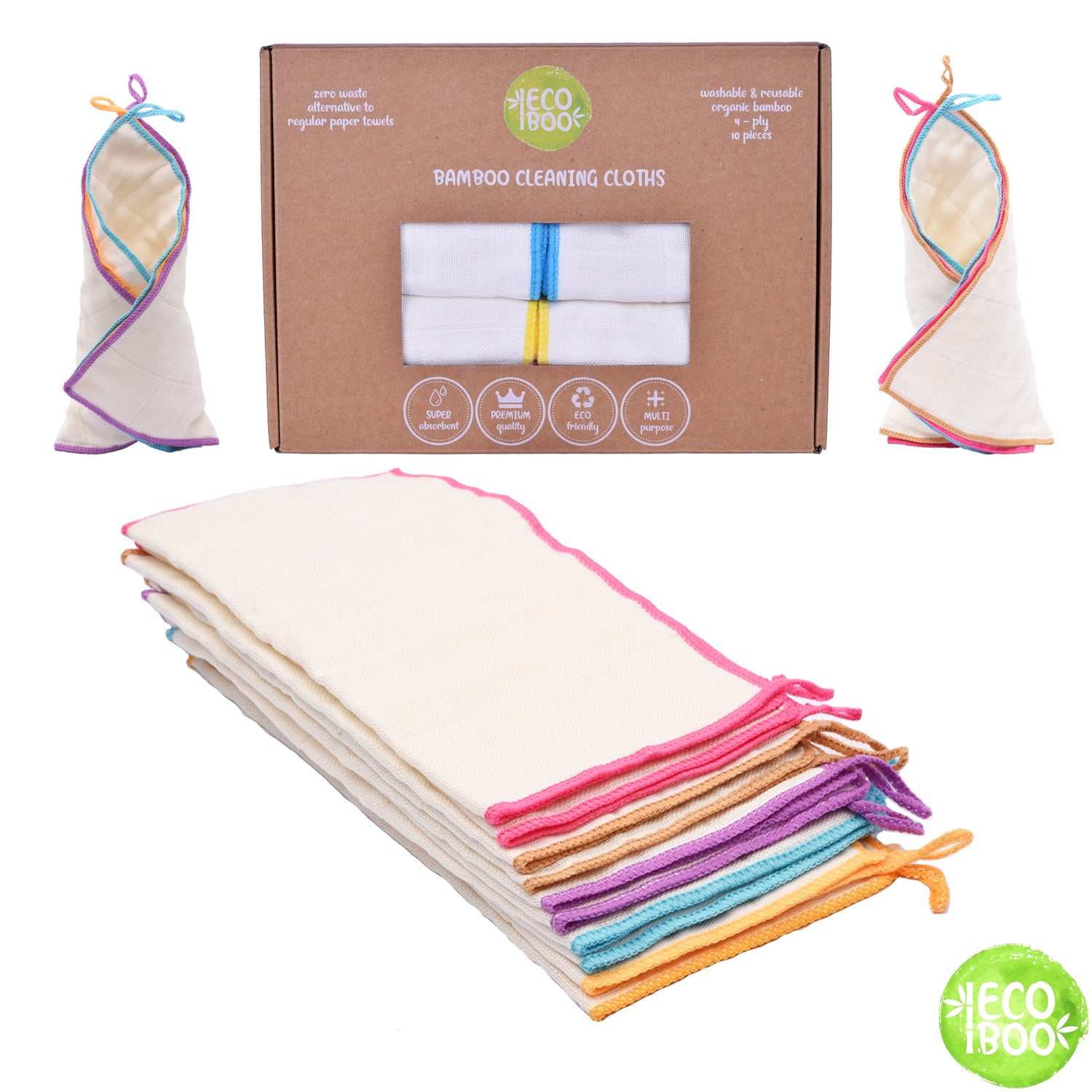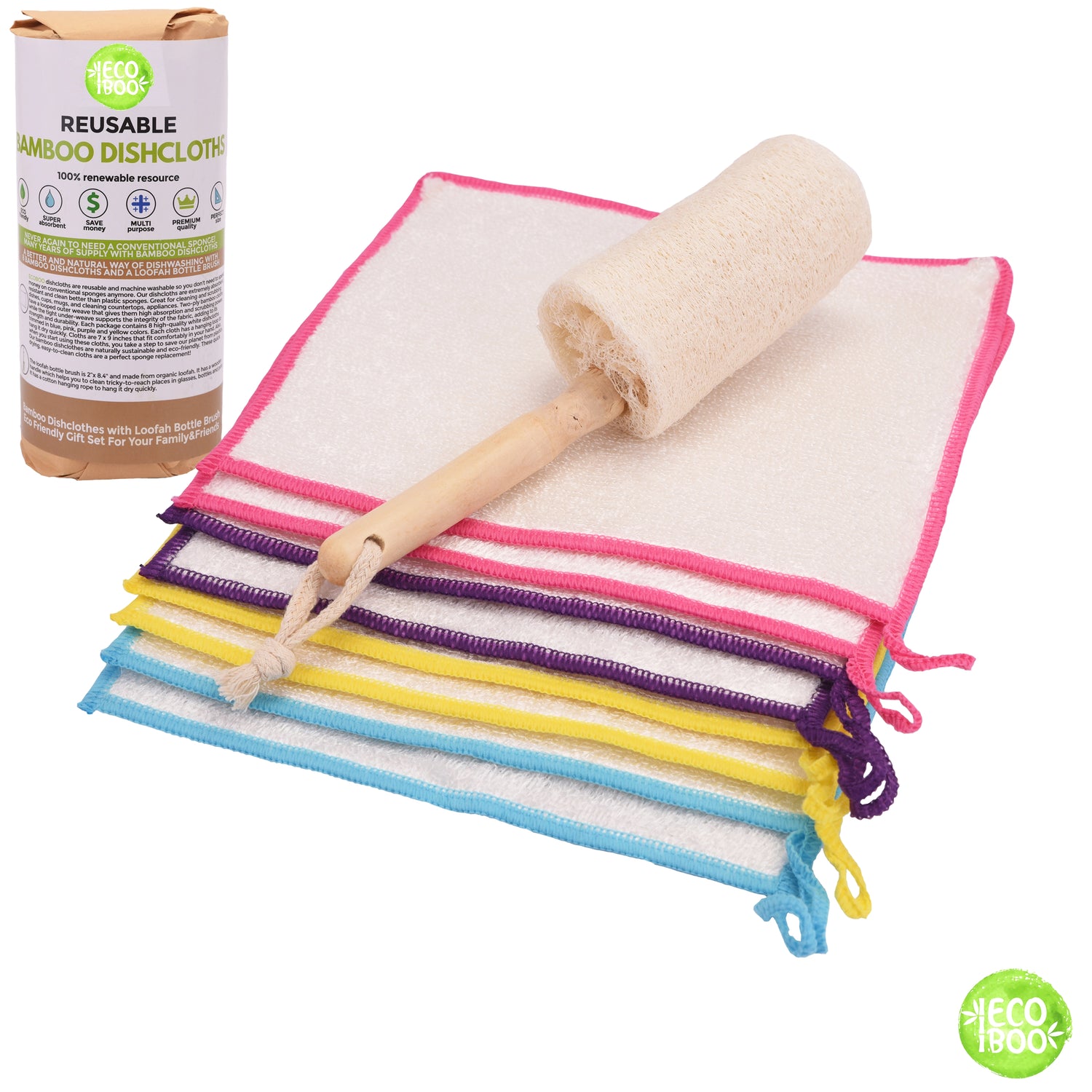I. Introduction
In today's fast-paced world, it's easy to pick up a cleaning tool or product from the nearest store shelf without giving it a second thought.
Yet, many of these tools and chemicals, made predominantly of plastics and non-biodegradable materials, not only contribute significantly to environmental degradation, polluting our waters and harming marine life, but also pose potential health risks to our respiratory system.
Fortunately, as awareness grows, there's a promising shift towards greener and healthier alternatives.
Alongside the rise of eco-friendly cleaning tools, there's also a surge in interest for Lung-Safe Household Products and Cleaning Tips.
These innovations promise not just to keep our homes clean, but also our lungs safe and our planet thriving.
II. The Loofah Revolution

What is a Loofah and its Origins? Loofah, commonly mistaken for a sea sponge, is a gourd in the cucumber family.
Originating in Southeast Asia, these dried fruits have been used for centuries as natural scrubbers.
Their fibrous texture provides a deep clean while being gentle on surfaces.
Benefits of Using Loofah as a Cleaning Tool:
- Biodegradable: Unlike plastic sponges, loofahs are 100% compostable. After their cleaning lifecycle ends, they return to the earth, leaving no trace behind.
- Natural Exfoliation: Their fibrous texture offers excellent exfoliation, making them perfect not just for cleaning dishes but also for skin care.
- Chemical-Free: Being all-natural, loofahs do not release harmful chemicals when they degrade.
Proper Care and Lifespan of a Loofah: Loofahs can last anywhere from a few weeks to several months, depending on their usage.
To prolong their life:
- Rinse thoroughly after each use.
- Hang or place in a well-ventilated area to dry.
- Once a month, disinfect by soaking in a vinegar-water solution.
III. Sustainable Scrubs and Brushes

Overview of Materials Used in Eco-Friendly Scrubs:
Moving away from the ubiquitous plastic scrubbers, many sustainable alternatives have emerged:
- Coconut Fiber: Derived from the husk of coconuts, these fibers are tough on grime yet gentle on surfaces.
- Sisal: This robust fiber comes from the Agave Sisalana plant and is renowned for its durability and strength.
Benefits of Natural and Biodegradable Materials:
- Environmentally Friendly: These materials decompose naturally without leaching harmful substances.
- Durability: Surprisingly, many natural fibers are more durable and retain shape longer than their plastic counterparts.
- Safe: Without synthetic chemicals, there's a reduced risk of allergens or irritants.
Comparison with Traditional Plastic Scrubs:
Plastic scrubs, while cheap and easily available, have a high environmental cost.
They release microplastics during use, contributing to water pollution.
Additionally, they take hundreds of years to decompose.
In contrast, eco-friendly scrubs might have a marginally higher initial cost, but they last longer, and their environmental footprint is minimal.
The transition to sustainable cleaning tools is not just an eco-conscious decision but also an economically sound one in the long run.
IV. Eco-Friendly Cloth Alternatives

Introduction to Reusable Cloth Options:
In the world of sustainable cleaning, disposable paper towels and synthetic sponges are steadily being replaced by more eco-conscious materials.
Leading the way are:
- Bamboo: An incredibly fast-growing plant, bamboo can be spun into soft, absorbent, and durable fabrics ideal for cleaning purposes.
- Cotton: Often favored for its softness and natural origins, cotton is a renewable resource that offers a perfect balance between absorbency and strength.
Advantages of Switching to Reusable Cloths:
- Reduce Waste: By opting for reusable cloths, households can drastically cut down on the waste they generate.
- Cost-Effective: Although the initial investment may be slightly higher, the longevity of these cloths ensures savings in the long run.
- Better Cleaning: Natural fabrics tend to be more absorbent and efficient at trapping dirt compared to disposable alternatives.
Proper Care to Maximize Lifespan:
- Regular Wash: Clean your cloths regularly to ensure they remain hygienic and effective. Natural cloths can often be machine washed but always check care instructions.
- Air Dry: Rather than tumble drying, let the cloths air dry. This will help maintain their structure and enhance their lifespan.
- Avoid Bleach: Natural fibers may degrade faster with the use of strong chemicals. Opt for natural cleaning agents to prolong the life of your cloth.
V. Natural Cleaning Agents
Cleaning doesn't always require heavy chemicals or powerful detergents.
Many ingredients already present in our homes can serve as effective cleaning agents:
- Baking Soda: A mild abrasive, baking soda is excellent for scrubbing surfaces. It also acts as a deodorizer, neutralizing stubborn smells.
- Vinegar: This natural acid works wonders in breaking down lime scale, dissolving away soap scum, and disinfecting surfaces. Its versatility makes it suitable for everything from cleaning windows to freshening laundry.
Benefits of Avoiding Chemicals in Household Cleaning:
- Healthier Home Environment: Without the residue of chemicals, homes become safer spaces, especially for children and pets.
- Reduced Pollution: Every time we rinse a chemically-laden product down the drain, we risk introducing those chemicals into waterways. Natural agents reduce this environmental impact.
- Gentler on Surfaces: Natural cleaning agents tend to be less abrasive, ensuring that the surfaces in our homes last longer and retain their appearance.
VI. Additional Sustainable Alternatives and Accessories

Eco-friendly Mop Options:
The traditional mop has received a green makeover.
Look for mops with bamboo or wooden handles and replaceable heads made from natural fibers.
These not only clean efficiently but also reduce waste by allowing you to change the mop head instead of discarding the entire mop.
Ecoboo reusable paper towels are mop-compatible so you dont need to buy sweeper pads.
Sustainable Dish Brushes:
- Materials: Sustainable dish brushes often feature wooden handles and bristles made from plant-based fibers like sisal or coconut.
- Benefits: Apart from being biodegradable, they are often more durable and effective at scrubbing away grime without scratching delicate surfaces.
Introduction to Other Tools:
- Biodegradable Sponges: Made from natural materials, these sponges decompose over time, unlike their synthetic counterparts.
- Silicone Scrubbers: Non-porous and bacteria-resistant, silicone scrubbers are durable and can often be cleaned in the dishwasher for added convenience.
VII. Making the Switch: Tips for Transitioning
Phasing Out Old Tools: Instead of throwing away all your old tools at once, wait for them to wear out naturally.
As they do, replace them with sustainable alternatives.
Cost-Benefit Analysis: Although sustainable tools might have a slightly higher upfront cost, their longevity, and reduced environmental impact often result in long-term savings.
Consider the frequent replacement costs of traditional tools versus the longer-lasting sustainable alternatives.
Overcoming Common Challenges:
- Availability: If your local stores don’t carry sustainable tools, explore online platforms.
- Initial Costs: Remember, it's an investment. The benefits, both environmentally and economically, manifest over time.
VIII. Conclusion
In today's environmentally conscious world, the choices we make in our households matter.
Sustainable cleaning tools, while a small component of our daily routines, can make a significant positive impact on our planet.
From loofahs to bamboo cloths, each eco-friendly tool plays a role in reducing waste, conserving resources, and ensuring a healthier home environment.
As readers, you are encouraged to evaluate your current cleaning practices and consider integrating greener options.
Remember, every small change can lead to a larger collective benefit for our world.
Dive in, explore, and make your cleaning routine a sustainable one!
Frequently Asked Questions
Q: What is a sustainable cleaning product?
A: A sustainable cleaning product is one that is designed to have a minimal impact on the environment. This can be achieved through the use of biodegradable ingredients, eco-friendly packaging, and processes that reduce carbon footprints. Such products prioritize the health of the planet alongside effective cleaning.
Q: How can cleaning be sustainable?
A: Cleaning can be sustainable by:
- Using products made from natural, biodegradable ingredients.
- Opting for reusable cleaning cloths instead of disposable ones.
- Reducing water usage while cleaning.
- Recycling and properly disposing of waste products.
- Choosing cleaning tools made from sustainable or recycled materials.
Q: What are some environmentally friendly cleaning products?
A: Some environmentally friendly cleaning products include:
- Baking soda: a versatile cleaner for multiple surfaces.
- White vinegar: effective for disinfection and stain removal.
- Castile soap: a plant-based soap that can clean various surfaces.
- Lemon juice: a natural cleanser and deodorizer.
- Essential oils like tea tree, lavender, and eucalyptus: have antibacterial properties.
Q: Which cleaning agent is more environmentally friendly?
A: Among common cleaning agents, white vinegar and baking soda are often considered the most environmentally friendly. Both are natural, biodegradable, and versatile, making them effective for a variety of cleaning tasks without harming the environment.
Q: What are the 5 natural cleaning materials and their uses?
A:
- Baking soda: Acts as a mild abrasive and can be used to clean surfaces, deodorize areas, and even unclog drains.
- White vinegar: Effective in removing mineral deposits, sanitizing surfaces, and acting as a fabric softener substitute.
- Lemon juice: Great for cutting through grease, brightening whites in laundry, and disinfecting surfaces.
- Cornstarch: Can be used to clean windows, polish furniture, and even as a carpet cleaner.
- Olive oil: Used in combination with other substances, it's effective for polishing wooden surfaces and stainless steel.
Q: What are the 5 cleaning products?
A: The term "5 cleaning products" isn't standard, but if we were to pick five essential cleaning products for a basic household cleaning kit, they might be:
- All-purpose cleaner: For general surface cleaning.
- Disinfectant: To eliminate germs and bacteria.
- Glass cleaner: For mirrors and windows.
- Floor cleaner: Specific to the type of flooring, whether wood, tile, or carpet.
- Bathroom cleaner: Formulated for tackling soap scum, mold, and other common bathroom stains.
